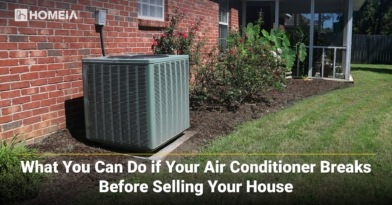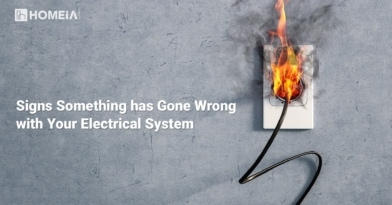How to Choose an HVAC System for Your Home
- Author:by The HOMEiA Team
- Category: Home Improvement

A reliable HVAC system ensures a comfortable home environment regardless of the weather outside. If you’re building a home or replacing an old system, you’ll find that there are plenty of HVAC options on the market. Here’s a comprehensive guide to making an informed decision.
Table of Contents:
1. What is an HVAC System?
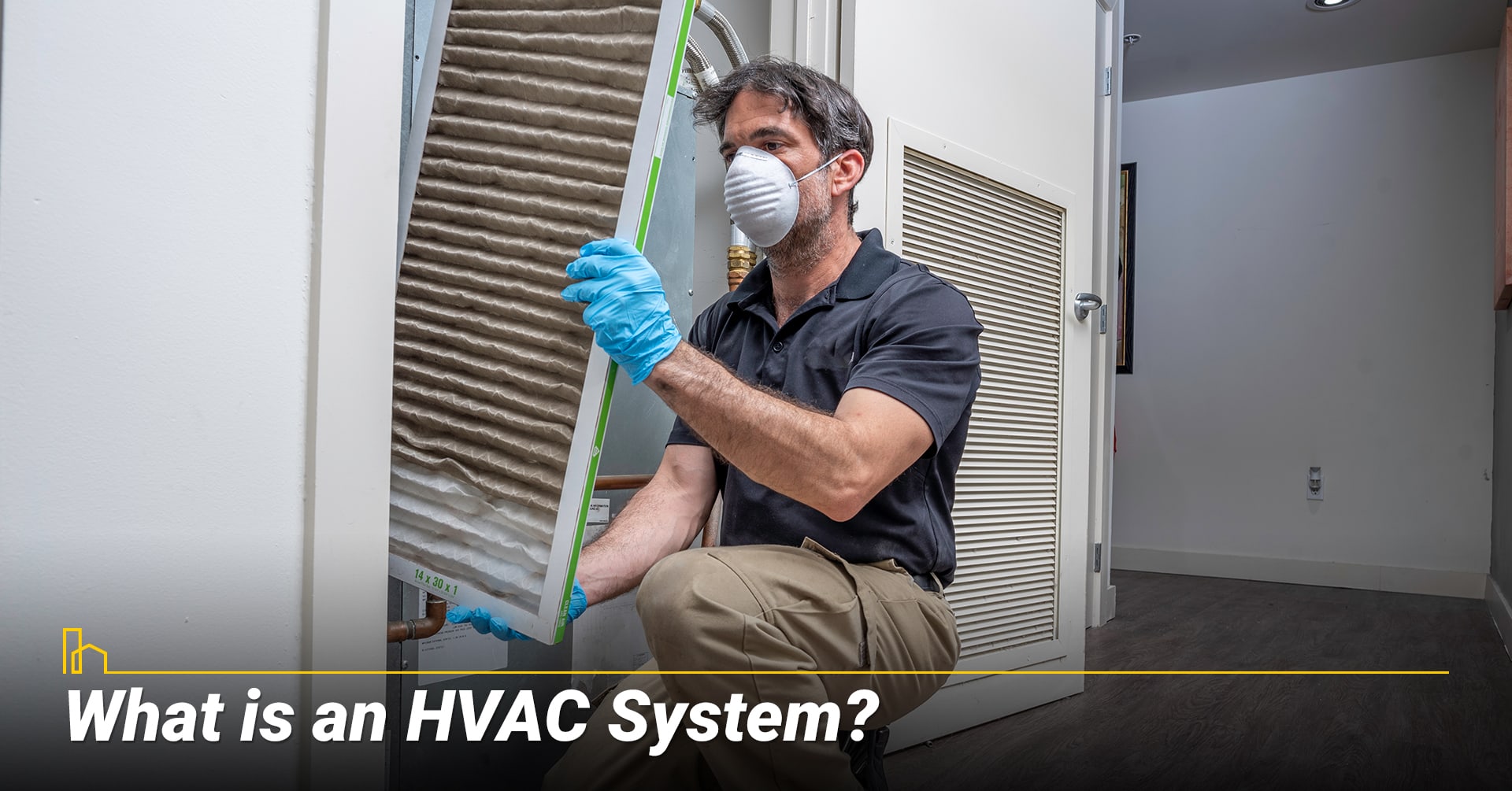
HVAC stands for heating, ventilation and air conditioning. Let’s look at each of those components.
A. Heating is the process of elevating the temperature inside your home to counteract the cold outside. Typically, furnaces, boilers and heat pumps are devices used for heating purposes.
B. Ventilation aids in maintaining good air quality by removing stale air and replacing it with fresh outdoor air. Methods of ventilation can be natural, like opening a window, or mechanical, such as using exhaust fans or air handlers. Proper ventilation can remove indoor pollutants like dust, allergens and volatile organic compounds (VOCs), significantly enhancing air quality.
C. Air conditioning, often referred to as AC, cools the air inside your home. Air conditioners function by pulling in warm air, cooling it via a set of coils, then recirculating the cooled air back into the living space.
An efficient HVAC system encompasses products such as heaters, air conditioners and ventilation ducts that circulate air throughout a home.
The comfort factor isn’t just about temperature. Proper humidity levels also play a crucial role. A well-functioning HVAC system will regulate humidity, preventing conditions like mold growth or overly dry air, which can lead to respiratory issues.
How Often Do You Need to Change Your Air Filter?
When was the last time you changed your home’s air filter? If you can’t remember, it’s probably time to do it again. It’s generally an easy maintenance task that doesn’t require any special skills. But first, let’s look at what your air filter does and why you need to change it…
2. How Do I Choose an HVAC System for My Home?
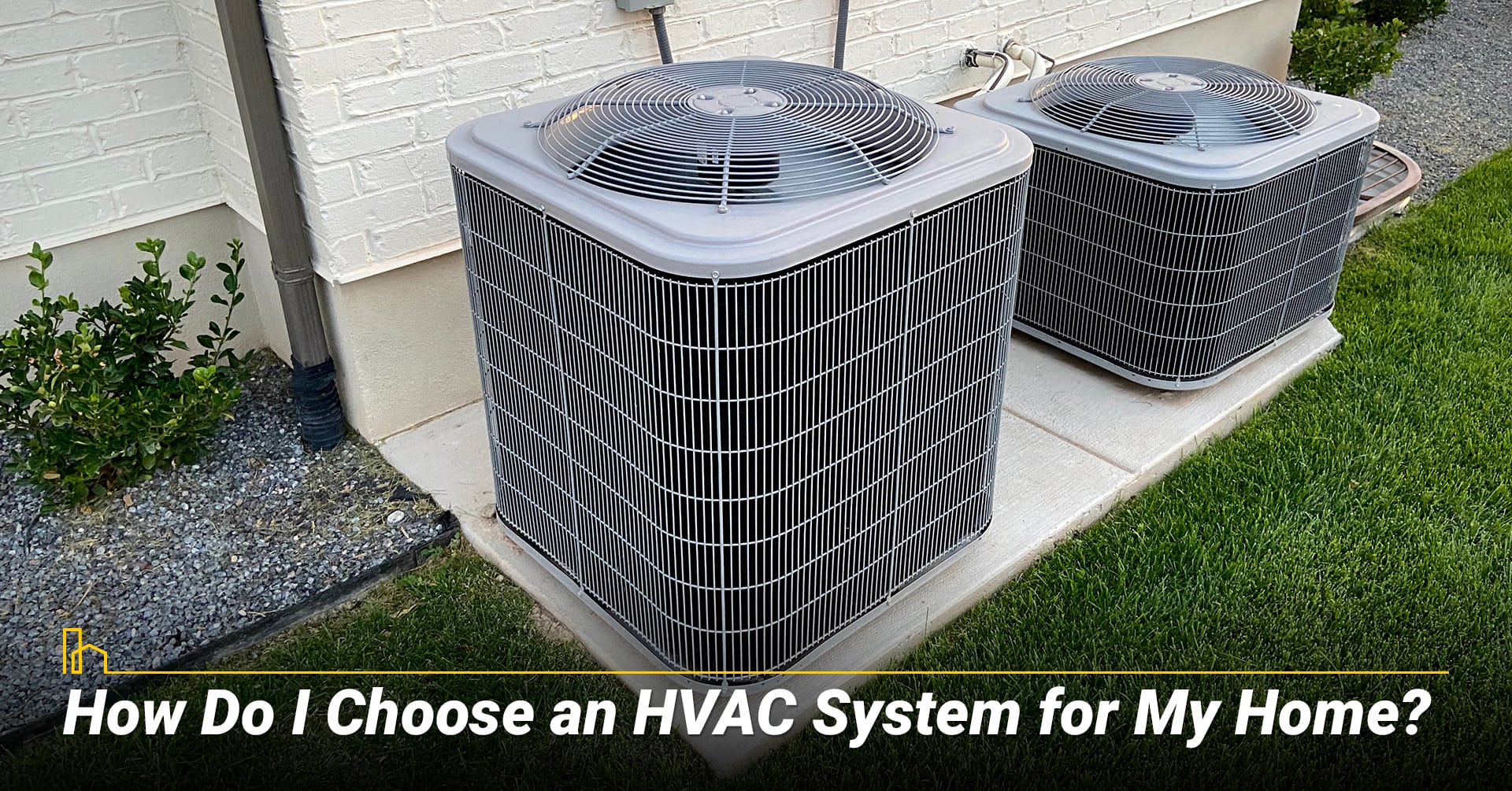
Selecting the right HVAC system can have a lasting impact on both your comfort and your utility bills. Here are some factors to take into consideration.
A. Size Matters
An HVAC system that is too small for your home will fail to maintain your desired indoor temperature. And an incorrectly sized unit, whether too large or too small, can lead to increased energy consumption. An oversized AC may continually cycle on and off, causing wear and tear, while an undersized one may run continuously, overloading the system.
HVAC sizing should account for factors like your home’s square footage, insulation levels, window size and orientation. A qualified HVAC professional similar to Columbus HVAC Repair Company can determine the appropriate size.
B. Energy Efficiency
A system with higher energy efficiency consumes less power, leading to decreased utility bills and a reduced carbon footprint.
SEER (for air conditioners) and AFUE (for furnaces) are industry-standard efficiency ratings. The EPA suggests a SEER rating of at least 13 for new air conditioners. For modern furnaces, an AFUE rating above 90% is considered high efficiency.
The Energy Star program reports that while high-efficiency systems might have higher initial costs, they can lead to savings of up to 20% on heating and cooling bills. Homeowners should consider both the upfront cost and potential long-term savings.
C. Brands & Warranty
Reliable brands often indicate quality, durability and superior performance. A warranty is a testament to the manufacturer’s confidence in their product.
Warranties can vary, though; some cover parts only, while others might include labor.
What You Can Do if Your Air Conditioner Breaks Before Selling Your House
Homebuyers expect to step into a perfectly temperature-controlled environment and be able to trust that the existing HVAC will continue to work for a while. So, if your A/C is not functioning when selling your house; here’re a few solutions that could help you sell your home quickly…
3. What Are the Best Locations for HVAC?
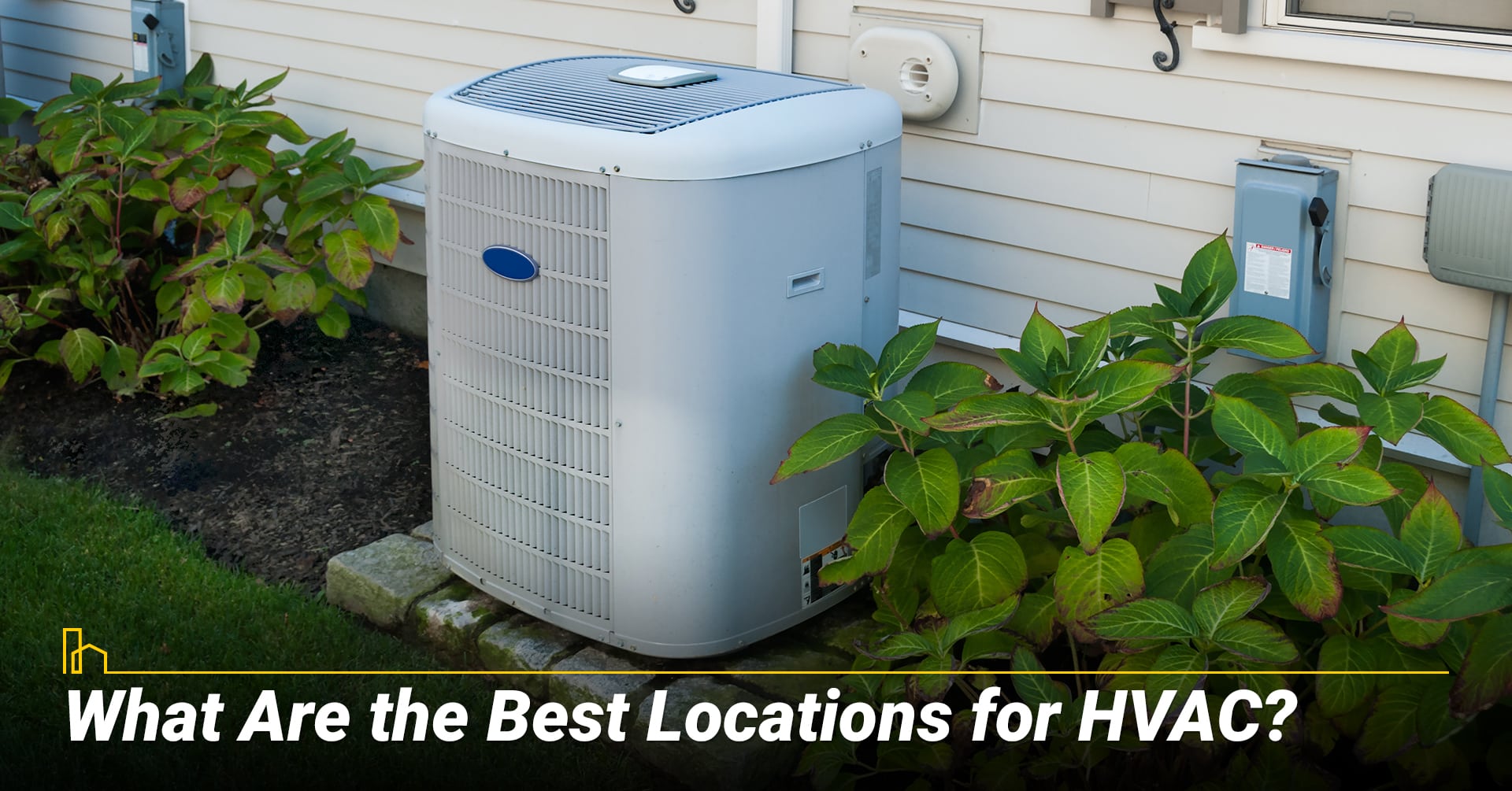
The positioning of HVAC components plays a pivotal role in the system’s performance, longevity and efficiency. Proper location can prevent unnecessary wear, reduce energy consumption and extend the equipment’s lifespan. Here’s a deeper dive into the best practices for HVAC placement.
A. Outside Units
Direct sunlight can make an outdoor unit work harder, decreasing its efficiency. Placing it in a shaded location ensures it remains cooler and operates optimally.
An outside unit, such as a condenser, can operate 10% more efficiently when it’s shaded. However, it’s essential to ensure that plants, shrubs or other obstacles don’t obstruct the airflow. There should be at least 2-3 feet of clearance around the unit and at least 5 feet on top for best performance.
B. Indoor Units
Indoor units, such as furnaces or air handlers, need to be easily accessible for routine maintenance and repairs. Placing them in out-of-the-way locations ensures they don’t intrude into living spaces.
Basements and attics are popular locations, but the National Association of Home Builders cautions that homeowners must make sure these areas remain dry and well-ventilated. Moist conditions can damage components and reduce efficiency.
Moreover, when installing a unit in an attic, it’s crucial to have a solid platform and sufficient lighting to facilitate any future maintenance or repair tasks.
C. Ductwork
Well-maintained ducts ensure efficient air distribution. Ducts that are not adequately sealed or insulated can lead to significant energy loss.
The U.S. Department of Energy states that, in typical homes, about 20% to 30% of the air moving through the duct system is lost due to leaks, holes or poorly connected ducts. For maximum efficiency, ducts should ideally be located within the conditioned space of the home. This means avoiding areas like unsealed crawlspaces where temperature extremes can compromise the conditioned air’s integrity.
The Best 10 Ways to Maintain Your House
Your house is most likely the most expensive purchase of your lifetime — and a safe haven that provides a hub for everyday activities, relaxation and making memories. It doesn’t remain in great shape without some effort, but with some loving care and an organized maintenance schedule, you can manage the upkeep without added stress…
4. How to Reset an HVAC System
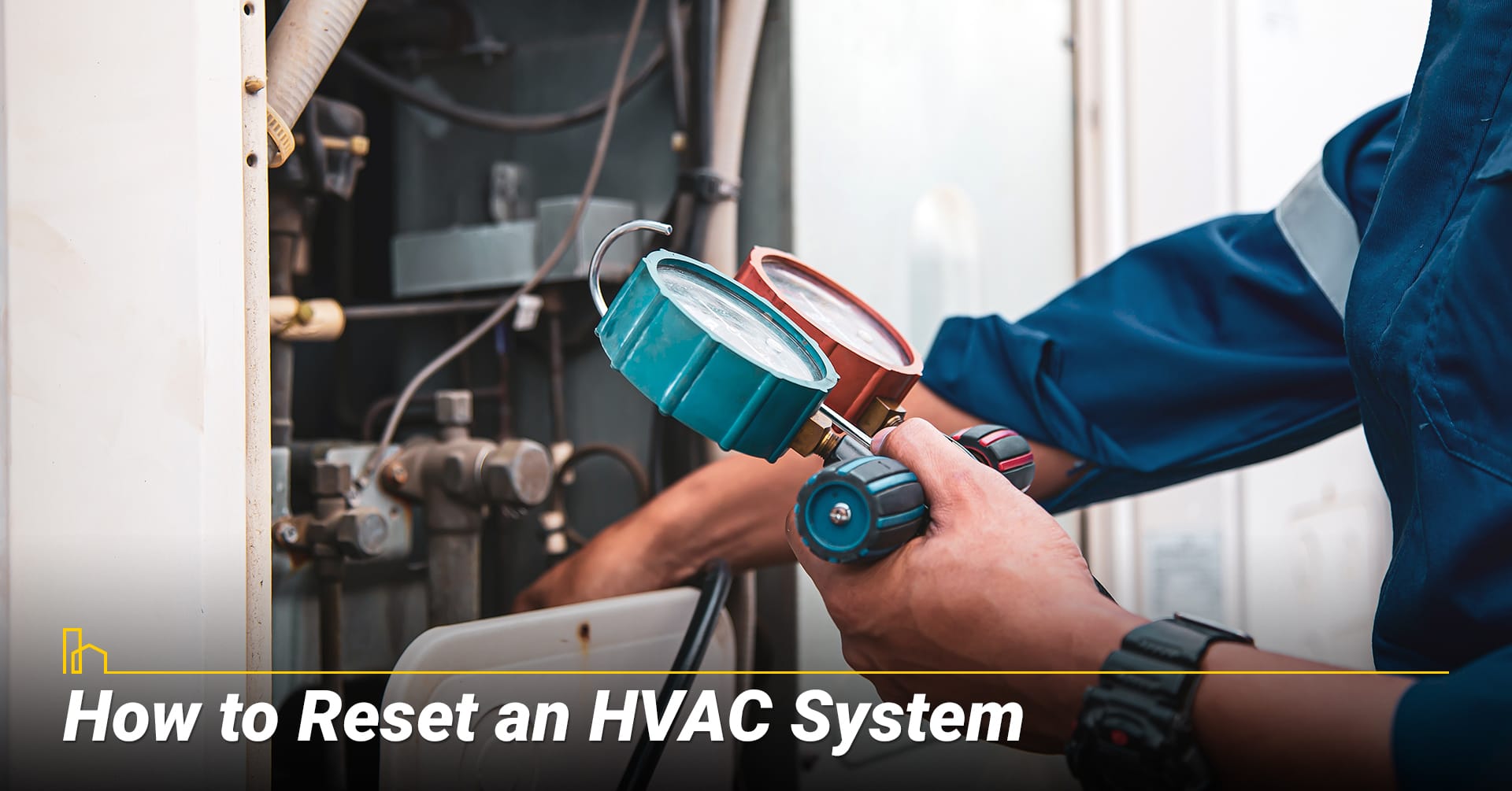
Resetting an HVAC system can often resolve minor issues such as short cycling or unresponsiveness. It’s similar to rebooting a computer when it acts unpredictably.
A. Turn off the system using the thermostat.
This ensures that the system stops its current operations, paving the way for a safe reset.
On most modern thermostats, there will be an “off” mode or setting. Switch to this mode before proceeding. Always refer to the user manual for the specific make and model of your thermostat if you’re unsure.
B. Disconnect the power by switching off the circuit breaker.
It’s imperative to ensure the safety of both the individual and the HVAC equipment. Cutting off the power prevents any unintended electrical incidents during the reset process.
Head to your home’s electrical panel or breaker box. Inside, you’ll find several switches. One of them, typically labeled “HVAC” or “Heating/Cooling,” corresponds to your HVAC system.
C. Wait for about 30 minutes.
This waiting period ensures any residual charge or energy in the system dissipates. It gives the system ample time to “forget” any minor glitches it might be experiencing.
D. Turn the circuit breaker back on, followed by the thermostat.
This powers up the system and restores its operation.
Once you’ve flipped the breaker, head back to the thermostat. Switch it from the “off” mode to your desired setting, whether that’s heating, cooling or a specific temperature.
Signs Something Has Gone Wrong with Your Electrical System
Fortunately, it’s not hard to make sure your electrical system stays in tip-top shape. Just pay attention once in a while and notice if there are any signs of trouble. Here’re 9 big signs that your electrical system has a problem—and what to do to keep the problem from growing even…
5. How to Clean an HVAC System
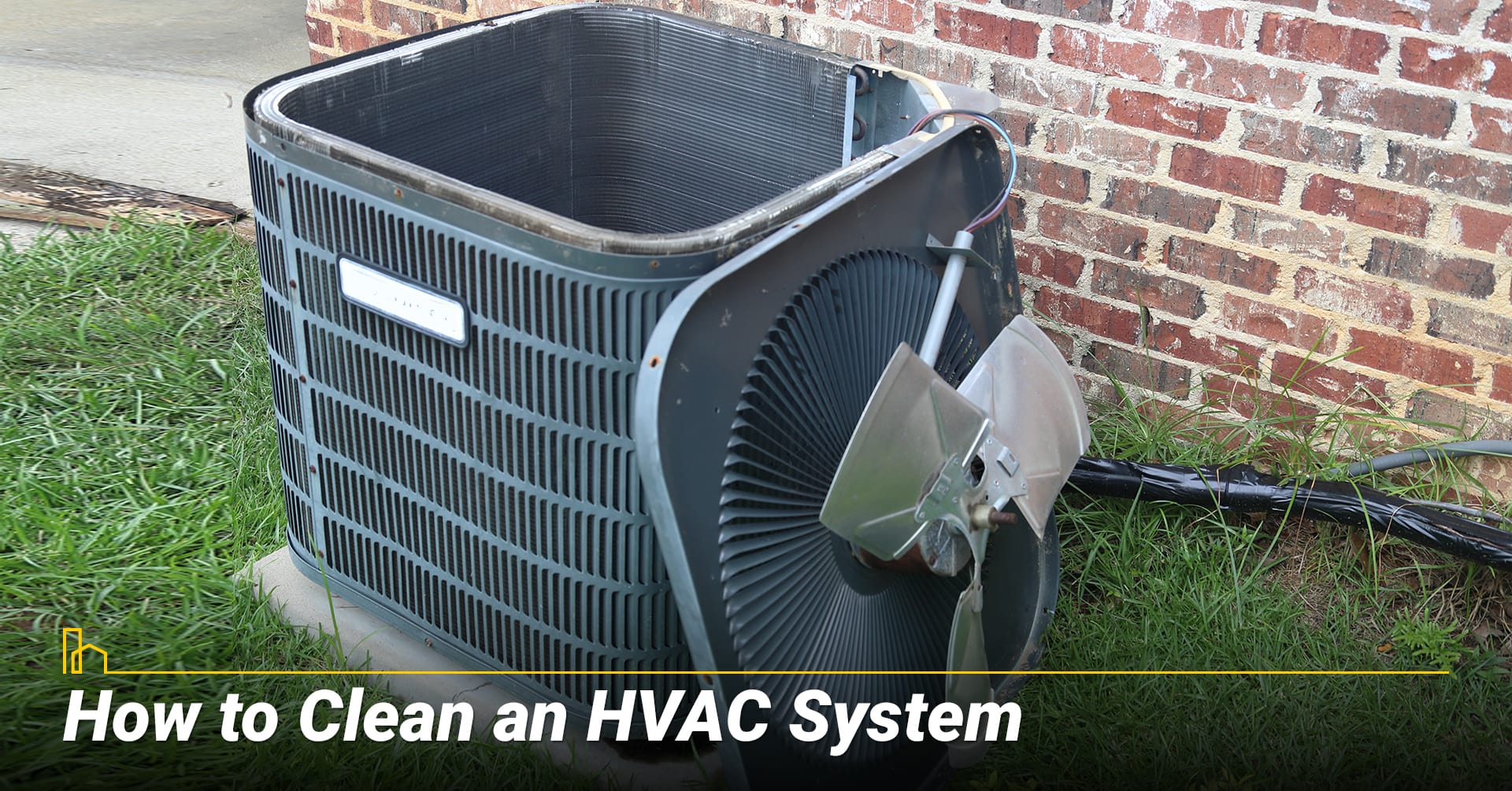
A clean HVAC system is crucial for ensuring efficient operation, prolonged equipment life and improved indoor air quality.
A. Filters
Filters trap dust, pollen and other airborne particles, ensuring that cleaner air circulates within your home. Over time, these filters become clogged, causing your system to work harder, which can lead to decreased efficiency and potential breakdowns.
The U.S. Department of Energy recommends checking filters every month, especially during heavy usage seasons like winter and summer. Depending on the type of filter you have, it should be replaced (for disposable ones) or cleaned (for reusable ones) every 2-3 months. For homes with pets or in particularly dusty areas, more frequent changes might be necessary.
The National Air Duct Cleaners Association (NADCA) suggests having your ducts inspected annually. While cleaning frequency can vary based on multiple factors, having them cleaned by professionals like every 2-3 years is a good benchmark. This ensures the removal of dust, pests, mold or any other contaminants.
B. Outdoor Units
Debris and plant growth around the outdoor unit can obstruct airflow, causing the system to work harder and reducing its lifespan.
Every few weeks, especially after storms or windy days, inspect your outdoor unit for leaves, twigs and other debris. Gently clean the surface and surrounding area. It’s recommended to maintain at least a 2-foot clearance around the unit. This means trimming any plants, shrubs or branches that might impede airflow or access to the unit.
How to Deal with a Mold Problem in Your House
When you have a leaking pipe within the walls, mold may also form in its vicinity. Even a leaky roof can lead to mold formation on your ceiling and the wall directly underneath the leak. Here is how to identify and remove mold from your house…
6. Does a New HVAC System Increase Home Value?
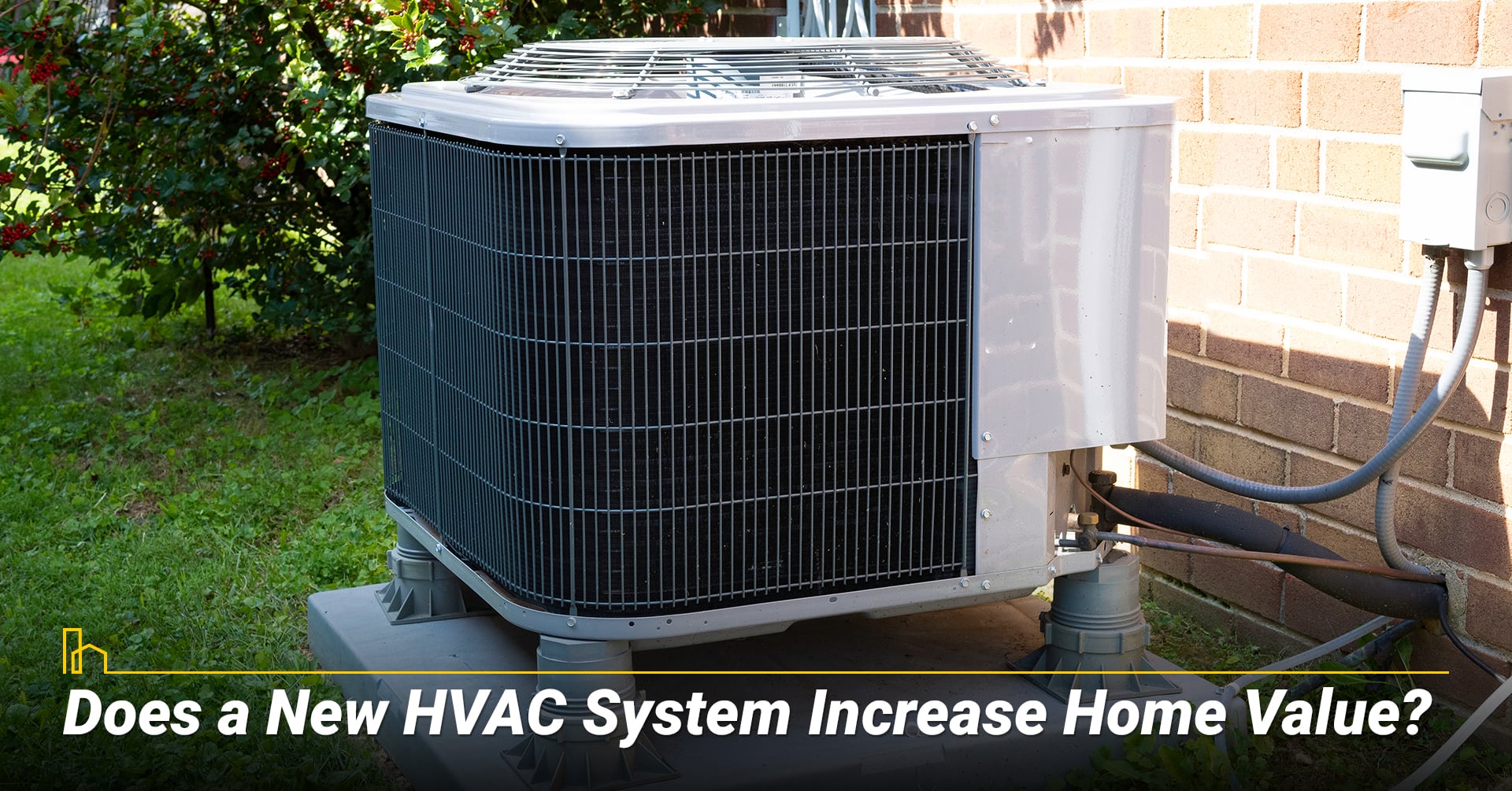
Yes! A new HVAC system may increase the value of your home. In an era where homebuyers are increasingly informed and tech-savvy, having an up-to-date HVAC system stands out as a major advantage. Buyers typically favor homes where no immediate heavy maintenance or replacement is needed.
Energy Efficiency is Key
Rising energy costs and environmental concerns have made energy efficiency a top priority for many homebuyers. An energy-efficient HVAC system can drastically reduce monthly utility bills.
7. How Long Does it Take to Replace an HVAC System?
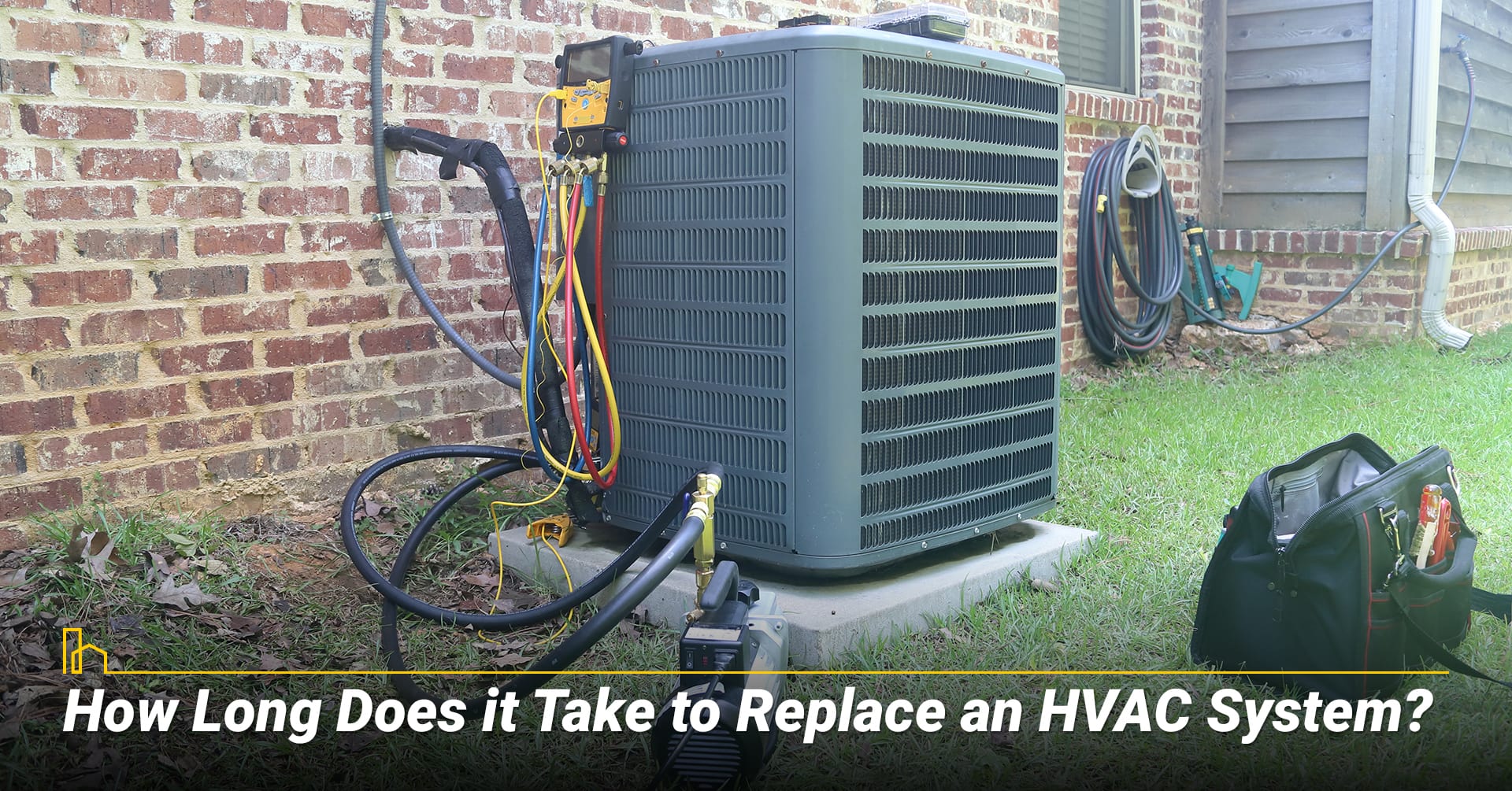
The timeframe can vary based on several factors. Here’s a breakdown of the duration involved in replacing different parts of an HVAC system.
A. Complete System Replacement
A total overhaul involves replacing both the heating and cooling systems, including components like the furnace, air conditioner and possibly the ductwork.
A complete HVAC replacement usually takes between 1 and 3 days. Several factors can influence this timeframe, including the size of the home, ease of access to the unit locations and any unexpected challenges that arise during the installation.
B. Individual Component Replacement
Replacing a singular component, like an air conditioner or furnace, is a relatively quicker process. Most professionals can complete such replacements within a single day. Factors like the model of the equipment, its location and the preparedness of the site can influence the exact duration.
While the core replacement process has its set timeframe, additional tasks might extend the duration. This includes tasks like ductwork inspections, system testing and cleanup.
If the ductwork needs adjustments or repairs, it might add several hours or even a day to the process. After installation, professionals usually test the system to ensure optimal functionality, which can take a couple of hours.
Conclusion
Your HVAC system plays a critical role in making your home comfortable and maintaining your indoor air quality. Well-designed, modern HVAC systems can provide better results, reduce energy consumption and even lower your utility bills. With proper care and maintenance, a good HVAC system can keep your home running for many years.
12 Common Kitchen Layout Mistakes to Avoid
If you intend to stay in your home, but your kitchen doesn’t fit your lifestyle and add enjoyment to the time you spend there, it’s time for a renovation. Updating a kitchen takes a lot of planning, and it’s easy to overlook some crucial things—especially in the layout. Here’s a list of common kitchen layout mistakes and how to avoid them.


